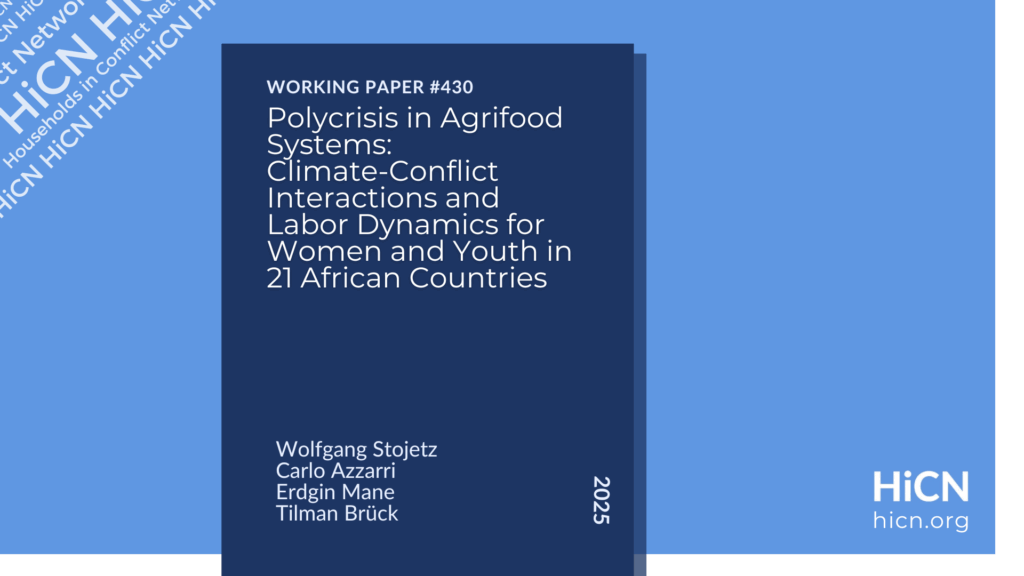
This paper provides evidence on the impacts of armed conflict and climate change on individual labor intensity. Based on pooled labor force survey, climate, and conflict event data from 21 African countries, we document that climate change and armed conflict can create a polycrisis: the negative impacts of extreme climate events on labor intensity in and outside of agriculture are more severe in conflict environments. This interaction effect, driven by heat waves and floods, is concentrated among young people, and it is the result of violent conflict presence before a climate event occurs, not of conflict events that occur at the same time as the climate event. In addition, our results suggest that conflict contributes to gender-specific shifts in labor allocation in response to climate events exacerbating women’s work burden. Our findings emphasize the importance of concerted, evidence-based policies to tackle climate-conflict polycrises, taking into account the specific vulnerabilities shaped by individuals’ gender and age.